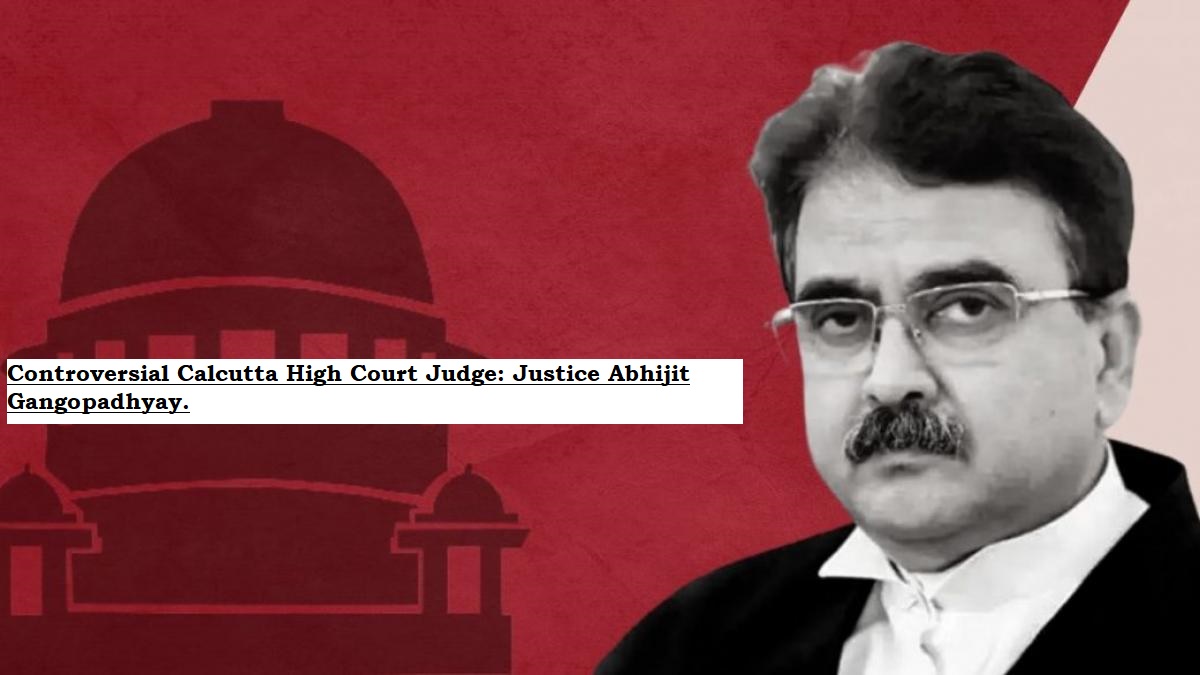


Recently, Justice Abhijit Gangopadhyay, a judge at the Calcutta High Court, sparked a heated controversy by dismissing and declaring illegal an order issued by a division bench led by Justice Soumen Sen. Justice Sen had previously stayed the single judge's order, which called for a CBI probe into irregularities related to medical admissions in West Bengal.
Justice Soumen Sen, a senior judge presiding over the division bench along with Justice Uday Kumar, justified the stay by highlighting the lack of opportunity given to the State to present progress in the investigation. Additionally, he pointed out that the original writ petition did not seek a CBI probe, and the transfer of the investigation should not be taken lightly.
In a surprising move, Justice Gangopadhyay labeled the division bench's order as "void ab initio" and accused Justice Sen of misconduct. The judge went further, alleging that Justice Sen harbored political bias in favor of the ruling dispensation in the State.
This situation underscores the significance of legal precedents, where courts rely on previous similar cases to guide their decisions. The doctrine requires courts to reference precedents when making decisions and to show respect for the decisions of larger benches or higher courts.
Article 141 of the Constitution asserts that the law decreed by the Supreme Court is binding on all subordinate courts. However, there is no statutory or constitutional restriction on a single bench overruling a division bench's verdict.
In a previous case, a division bench comprising Justices Rajesh Bindal and Vikram Nath emphasized that decisions of a coordinate bench should be respected and binding. The only course of action for a bench of equal strength is to take a different view and refer the question to a larger bench.
In the current scenario, the strength of the division bench in appeal clearly surpasses that of the single bench. Disregarding the division bench's order raises concerns about the single bench violating the principles of judicial discipline.
While the principles of judicial indiscipline are well-defined for the Supreme Court, High Courts, and subordinate judiciary, the application of these principles in cases where irreverence is shown to a division bench's verdict by a single bench remains to be seen.
In another contentious incident, Justice Gangopadhyay directed the immediate arrest of a lawyer in his courtroom for alleged criminal contempt. The lawyer was taken into custody by the Sheriff directly from the courtroom, adding another layer of controversy to Justice Gangopadhyay's recent actions.
These controversies surrounding Justice Abhijit Gangopadhyay raise questions about the proper interpretation of legal precedents, the limits of a single bench's authority over a division bench, and the adherence to principles of judicial discipline within the Calcutta High Court. The unfolding events will likely prompt a closer examination of these legal nuances and their implications for the judicial system.
TAGS: Justice Abhijit Gangopadhyay Calcutta High Court Controversy Division bench Justice Soumen Sen CBI probe Irregularities